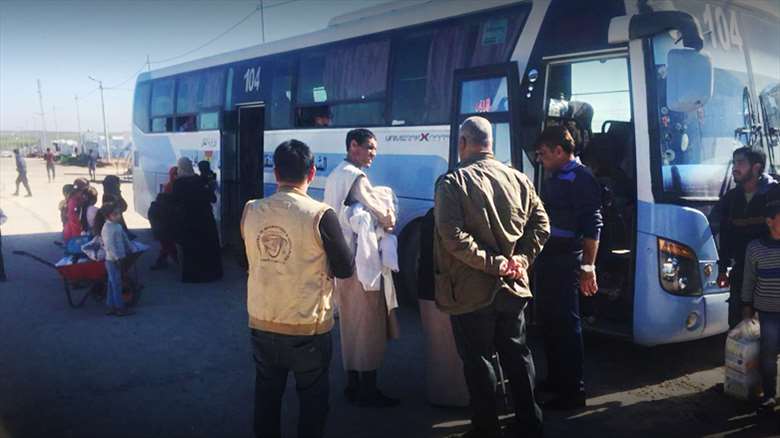HRW: Camp expulsions in Iraq leave families homeless, vulnerable
Human Rights Watch (HRW) warned on Wednesday that the ongoing operations to close camps for internally displaced people in Iraq without adequate deadlines are leading some camp residents to “homelessness and poverty.”

ERBIL (Kurdistan 24) – Human Rights Watch (HRW) warned on Wednesday that the ongoing operations to close camps for internally displaced people in Iraq without adequate deadlines are leading some camp residents to “homelessness and poverty.”
HRW reaffirmed its claim for authorities to give freedom of movement to camp residents, which sometimes served as open-air prisons, pointing out that government measures to facilitate family documentation is a positive step. However, “authorities should not force camp residents out without first ensuring they have alternative access to shelter, food, water, health care, and other basic services in a safe and secure environment.”
In October 2020, Iraqi Prime Minister Mustafa al-Kadhimi formed a committee tasked with the closing of 17 camps that currently house at least 60,337 people, displaced by the fighting between the so-called Islamic State and Iraqi forces between 2014 and 2017.
Since mid-October, the authorities have closed 11 camps and converted two others into informal camps, resulting in the eviction of at least 27,191 residents, most of them women and children, according to aid workers.
“Reintegrating families who have spent years in camps back into Iraqi society, so they can start to lead a normal life is a positive step,” Belkis Wille, senior crisis and conflict researcher at Human Rights Watch, said.
“But the current approach of forcing people out of camps that have provided them with food, shelter, and security for years, often with only 24 hours’ notice, makes them even more vulnerable,” Wille added.
The committee plans to close all camps in Baghdad-controlled areas by December 2020, and those in the Kurdistan Region by 2021.
The United Nations also warned that it was “gravely concerned” about the fate of large numbers of the millions who were displaced since the so-called Islamic State’s emergence in the country in 2014 as Baghdad continues to close camps where they have been living for years, the latest located in the disputed province of Kirkuk.
Read More: UN ‘gravely concerned’ as Iraq closes camps before displaced can safely return home
HRW indicated that its reports documented how the Iraqi authorities made decisions about where these families could live without proper consultation with them and decided either to leave the families in the area from which they fled, move them to another camp, or force them to return to the areas in which they are located, their homes.
According to aid workers, the government did not consider each family’s special situation and vulnerabilities before its expulsion from the camps.
According to the report, “the government’s newest push to close all remaining camps is so rapid that it is forcing people out with no time for them to figure out where it would be safe for them to go or how to get housing.”
In mid-November, two European humanitarian organizations criticized Iraq’s decision to close displacement camps, arguing that it would endanger hundreds of thousands of vulnerable civilians.
Read More: European organizations criticize Iraq’s plan to close displacement camps
Editing by Karzan Sulaivany